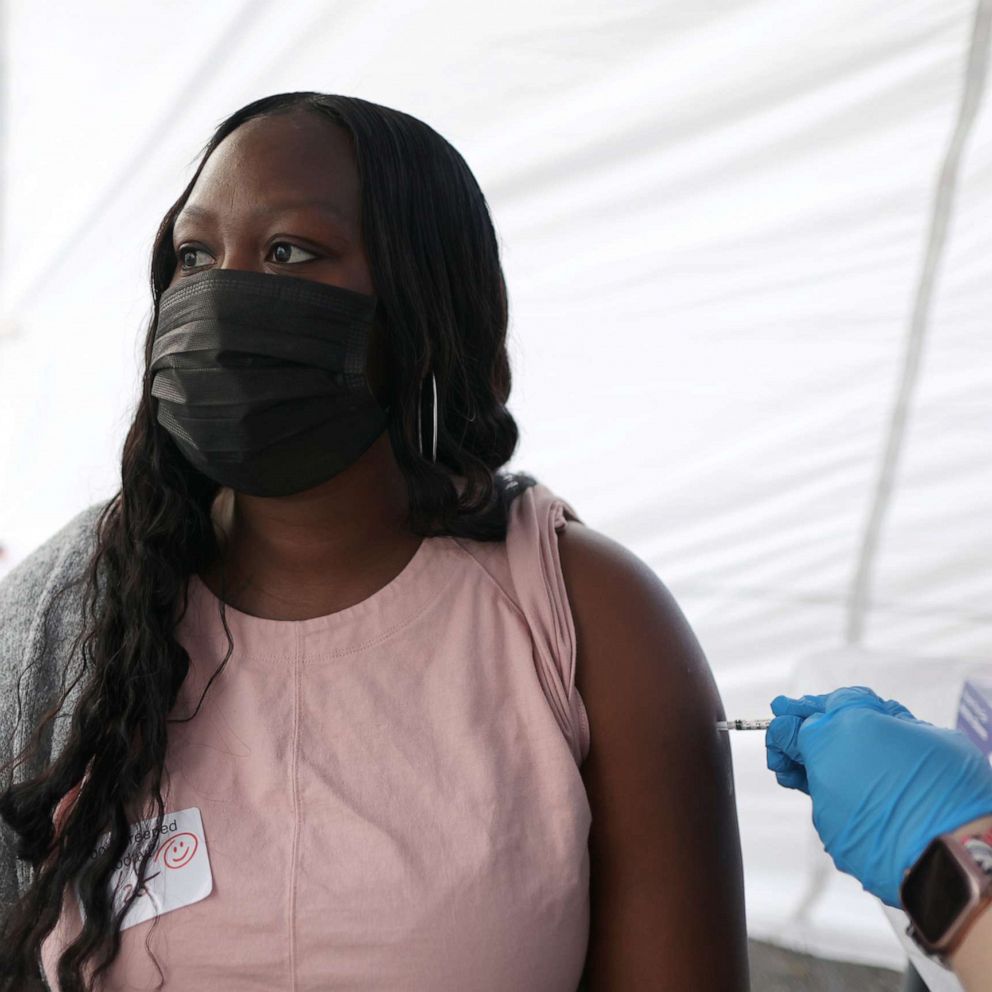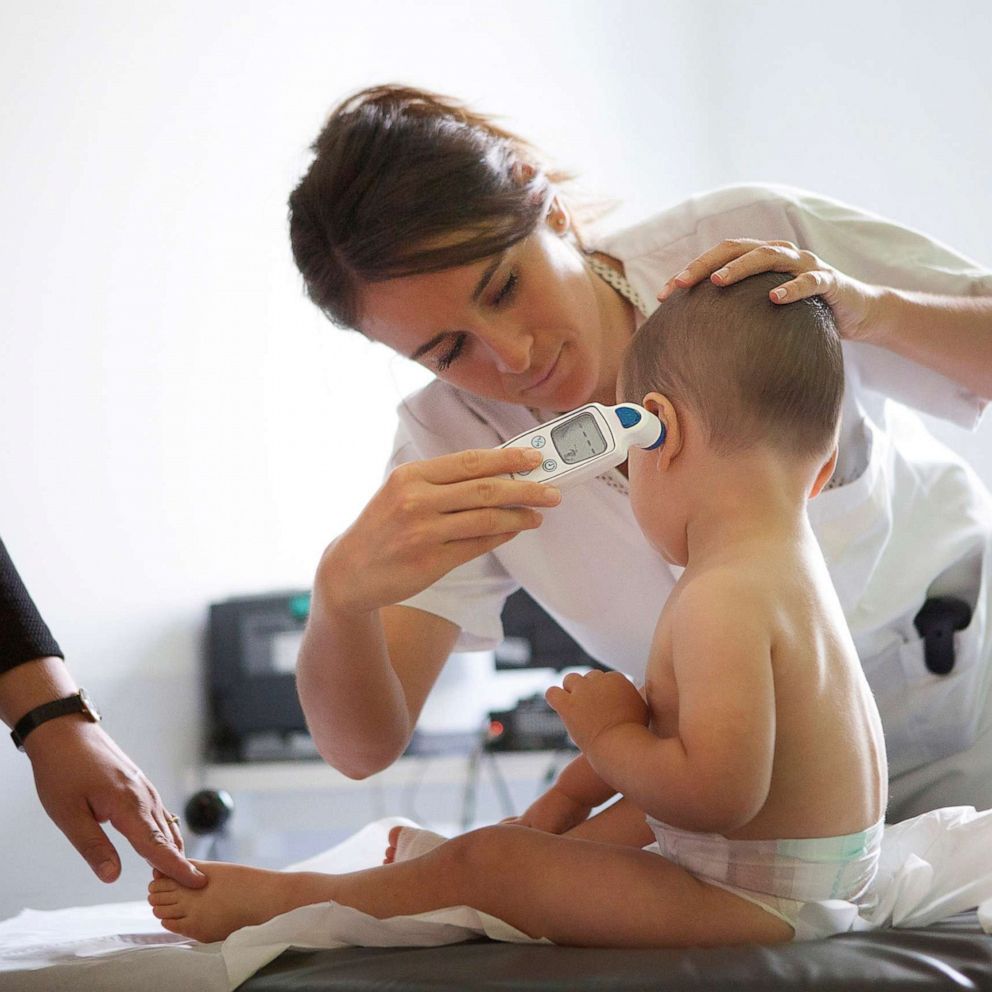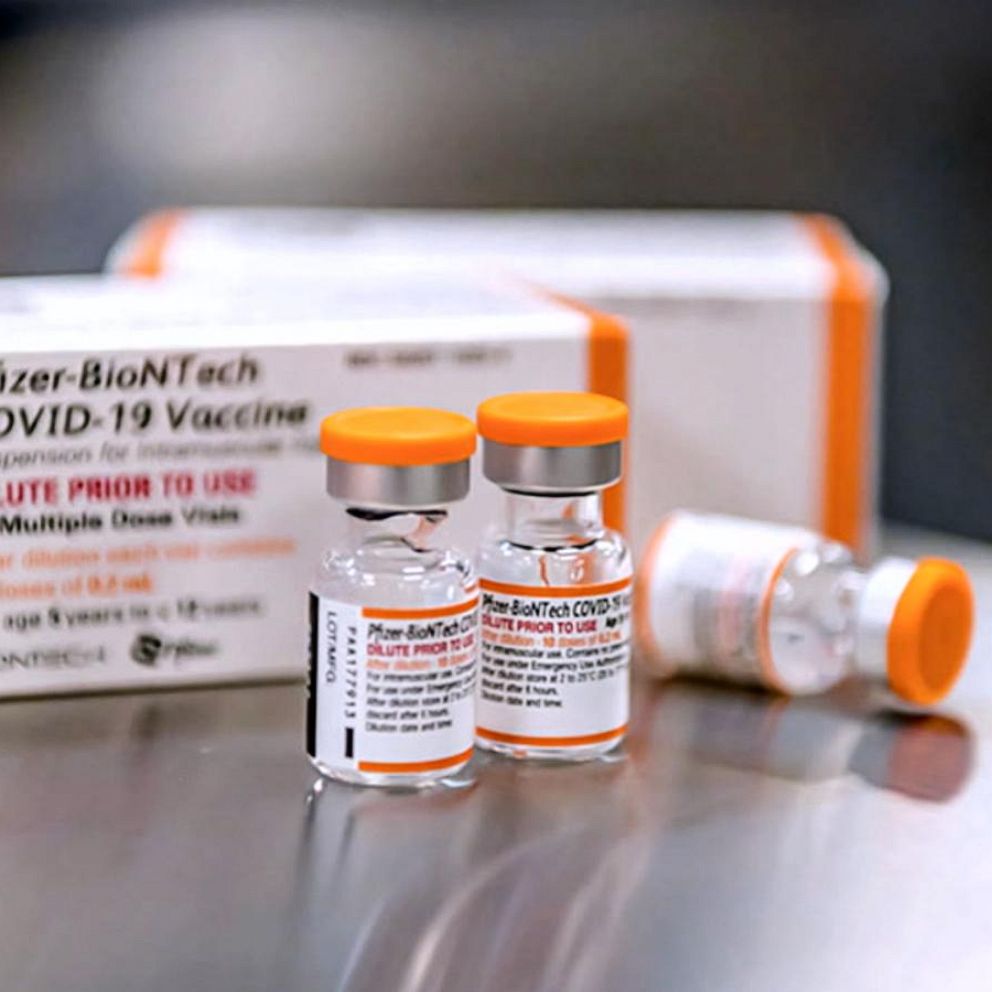Kids and the COVID-19 vaccine: 5 questions answered by pediatricians
The CDC has approved Pfizer's COVID-19 vaccine for kids ages 5 to 11.
Children ages 5 to 11 are now eligible to get vaccinated against COVID-19.
Dr. Rochelle Walensky, director of the Centers for Disease Control and Prevention (CDC), on Tuesday signed off on a recommendation made earlier in the day by an independent CDC advisory panel, making the Pfizer COVID-19 vaccine available to the approximately 28 million children aged 5 to 11 in the United States.
"This is really just a time for parents to celebrate," Walensky said Wednesday on "Good Morning America." "We’ve done the due diligence, reviewed the science, made sure we have the appropriate doses for our children and really now we have parents who can have the peace of mind that when they get their kids vaccinated, they will be protected."
"GMA" spoke with leading pediatricians from across the country, and here are their answers to five questions about vaccines for children 5 to 11.
We asked 6 pediatricians 5 questions from parents about kids and the COVID-19 vaccine
1. Why does a child need a COVID vaccine?
Getting kids vaccinated against COVID-19 helps protect them against serious illness, according to Dr. Mark Kline, physician-in-chief at Children's Hospital New Orleans.
"The idea that children don't get very sick from COVID was a myth," he said. "The delta variant that hit us so hard over the summer really disabused us of that myth once and for all."
More than 1 million children were diagnosed with COVID-19 in the past six weeks, adding to the total of more than 6 million children who have tested positive since start of the pandemic, according to the American Academy of Pediatrics.
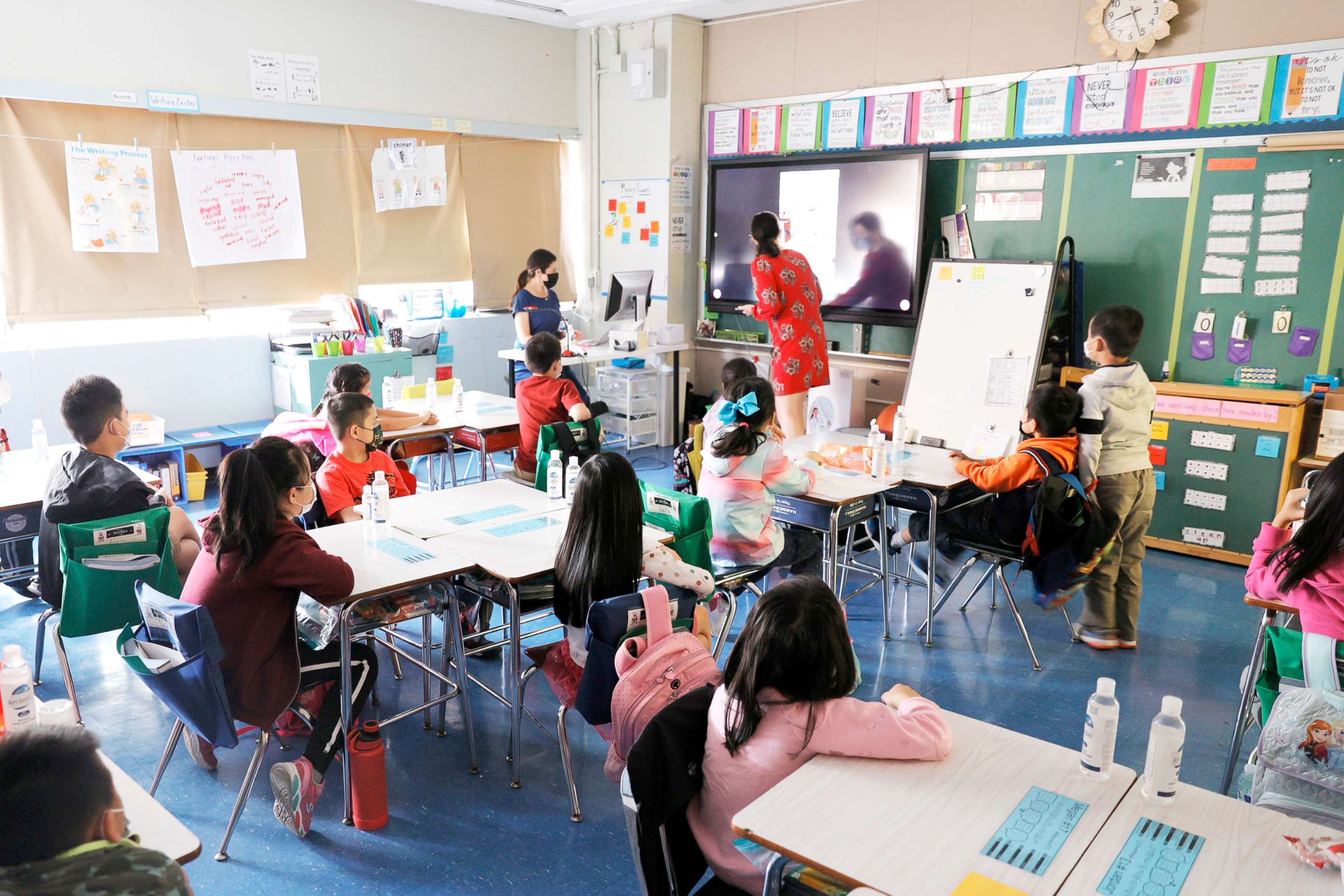
While it's true kids often have more mild cases of COVID-19, they can still get "very sick" from the virus, according to Dr. Mobeen Rathore, division chief of pediatric infectious diseases at the University of Florida College of Medicine.
"Many children, as we saw this last surge, do get very sick," he said. "They do get in the hospital, they do get into the ICU, and they can be on a breathing machine -- and, unfortunately, they can die."
More than 700 children and teens under 18 have died of COVID-19 in the U.S. since the start of the pandemic, according to the CDC.
2. How do we know a vaccine safe for kids under 12?
Pfizer has conducted clinical trials with its COVID-19 vaccine on kids ages 5 to 11 since last year and the company's most recent data shows that it was nearly 91% effective against symptomatic illness.
The vaccine also appeared safe. None of the children in the clinical trials experienced a rare heart inflammation side effect known as myocarditis, which has been associated with the mRNA vaccines in very rare cases, mostly among young men.
"We learned a lot from the vaccination of 12-to-18-year-olds, especially about rare side effects like myocarditis," said Dr. Andrew Nowalk, a clinical specialist in pediatric infectious diseases at University of Pittsburgh Medical Center. "The vaccine trials that were done in the 5-to-11-year-olds looked at a range of doses, including the higher dose that we used in the adolescents and adults and then lower doses, and the lower dose was found to be very effective with fewer side effects and that's what the vaccine is being based on."
"I think this is a tribute to our dedication to vaccine safety throughout all of these trials," he said.
3. Is the vaccine dose for kids different than for adults
For kids, the Pfizer vaccine will be smaller, one-third of the adolescent and adult dose.
Like adults and adolescents, kids ages 5 to 11 will be fully vaccinated after two shots. Their vaccine is proposed to be given in two 10-microgram doses administered 21 days apart.
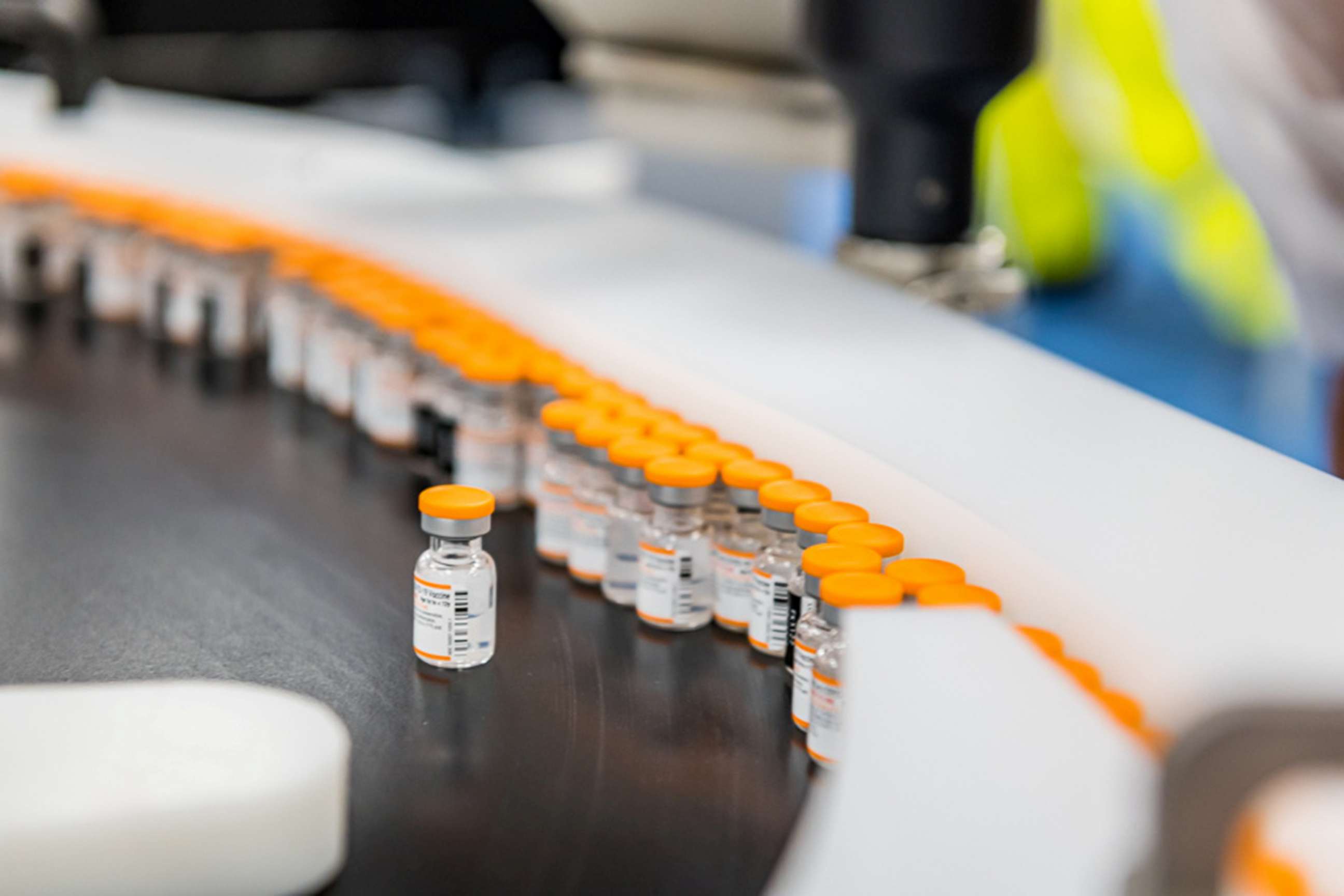
The smaller doses will allow kids to develop a strong immunity while minimizing possible side effects, according to Dr. Alok Patel, a pediatric hospitalist at University of California, San Francisco.
"The thought there is, this will actually give those young robust immune systems enough information to tank up those antibody levels," he said. "But also at a smaller dose, it's going to reduce the chances of immune reactogenicity. It's going to make it a safer vaccine."
When it comes to dosing, differing immune systems among people of different ages help explain why the cutoffs for vaccine eligibility rest on age and not body size.
"You don't need to worry that your 11-year-old is going to be under-dosed if they get the smaller pediatric dose," said Dr. Allison Bartlett, a pediatric infectious disease specialist at the University of Chicago Comer Children's Hospital. "Conversely, we've had plenty of small 12 and 13 and 75-year-old people get the full adult dose and are doing just fine.”
In addition to the COVID-19 vaccine, other immunizations are also scheduled and administered based on age and not weight. This is partially due to the fact that the body’s immune responses to vaccinations and infection are known to be different based on age.
4. Will the vaccine affect kids' development?
"There's no evidence that this vaccine has any effect on the development," said Rathore. "There's also no biologically plausible reason that it would affect the development of your child, and the reason for that it is a protein that, once it does its job in the body, it goes away."
There is also currently no clinical evidence to suggest any of the COVID-19 vaccines can have long-term effects on puberty or fertility.
Both the Pfizer and Moderna vaccines use mRNA technology, which doesn't enter the nucleus of the cells and doesn't alter human DNA. Instead, it provides a genetic "instruction manual" that prompts cells to create proteins that look like the outside of the virus -- a way for the body to learn and develop defenses against infection.
5. Why should I get my child vaccinated now?
The pediatricians "GMA" spoke with collectively agreed it is important for parents to get their child ages 5 to 11 vaccinated as soon as they are eligible in order to help protect their child's health and to help protect the health of others.
"I would say that the most important reason not to wait is kids are dying from COVID right now in the United States," said Nowalk. "We've actually had more pediatric deaths in the last couple of months than at any other time during this epidemic."
Kline, of Children's Hospital New Orleans, said he hopes his grandchildren will be among the first in line for a vaccine once eligible.
"I don't see any virtue in waiting and putting children further at risk for preventable illness or even death," Kline added. "The advice that I'm giving to parents that I counsel in the clinic, and the advice that I have given to my own daughters about my grandchildren is, the moment those vaccines are available at the pharmacy or at the pediatrician's office, they should avail themselves of the opportunity to get the vaccine."
If parents have questions and concerns, they should talk with their health care provider, advised Dr. Robert Frenck, lead investigator of the pediatric COVID-19 vaccine trials at Cincinnati Children's Hospital.
"What every parent is trying to do is to protect their child and to make sure their child is healthy and happy," said Frenck. "And while doing something new or different can be scary, we have a lot of information around the COVID-19 vaccines that we have a good safety profile."
Parents should reach out to health care providers and ask questions to make sure they're comfortable, Frenck added.
"I hope that you'll find that the right decision is to vaccinate your children," he said, "because this is really what we need to get things back to normal."
ABC News' Medical Unit members Lauren Joseph, Jacob Warner and Sony Salzman contributed to this report.
